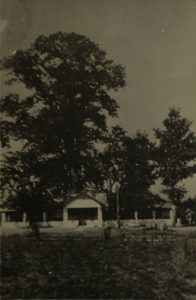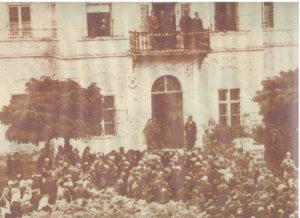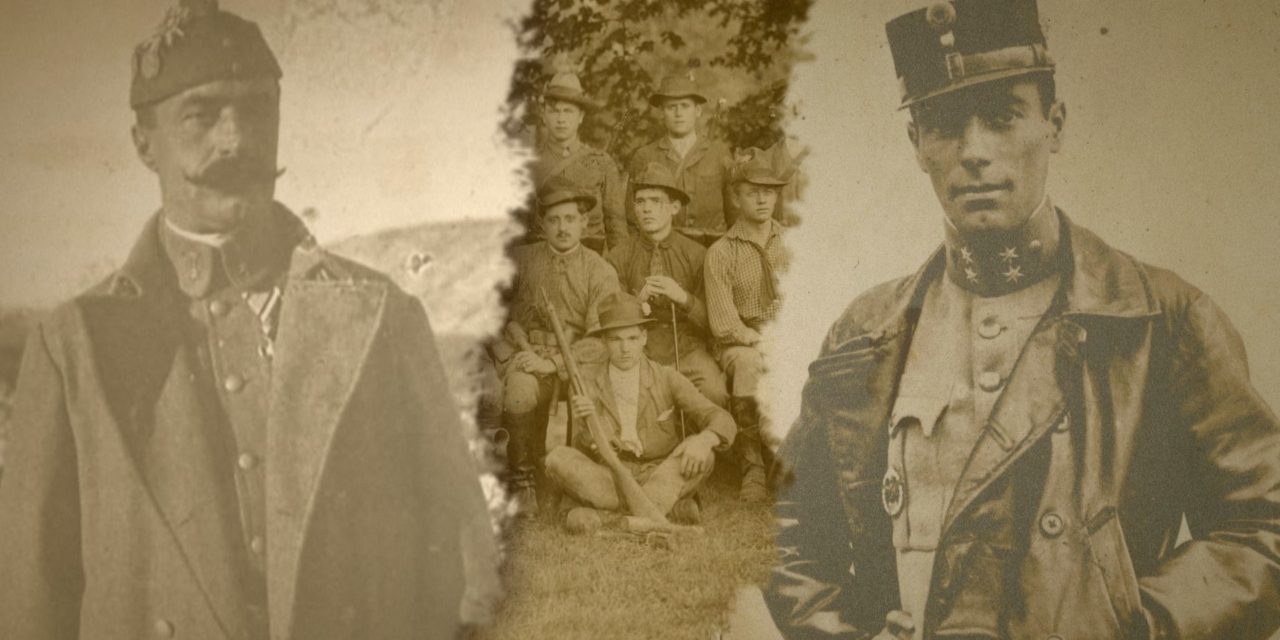At the end of the summer of 1921 - one hundred years ago this year - an unexpected and surprisingly successful uprising broke out in Western Hungary due to the Trianon decision. One of these provisions - confirming the previous peace of Saint-German in 1919 - would have annexed nearly four thousand square kilometers of territory from our country in favor of the Austrians, who also lost in the First World War. However, brave and determined soldiers - under the leadership of the Rag Guard and with the help of the population - fought to defend the homeland. They achieved what was not achieved elsewhere: the referendum. Thus, Sopron, the most loyal city, and many surrounding settlements have remained part of our country to this day.
In November 1918, Count Mihály Károlyi (his treachery and pacifism) threw the historic Hungary, which still had significant reserves of strength, before the Entente, who at first timidly, then with increasing enthusiasm, made it a free prey to satisfy the territorial needs of the neighboring countries and at the same time the Central European status quo was eternally valid. to change.
The Red Count also unleashed the communists on us, who committed terrible crimes at the behest of Béla Kun, Szamuely, and the others in several Hungarian regions, mainly in Budapest, the Alföld, South Transdanubia, but also elsewhere.
To fight them and to stop the Romanian invaders - who behaved like a murderous horde - the Ragged Guard, whose soldiers were partly front-line fighters, was created under the leadership of Air Chief Lieutenant Iván Héjjas. "Nobody protects us here," Héjjas told his men in despair.
On April 18, 1919 (102 years ago today), they took an oath on the Héjjas farm near Kecskemét, under the huge, century-old poplar tree, to protect the homeland, and at every moment of crisis they were ready to reorganize for the benefit of the nation.
They fought in the Great Plains, Western Hungary, the Highlands and Transcarpathia from their formation until 1938.

Poplar with bark, family album
These soldiers and the civilians who joined them liberated Western Hungary in 1921, risking their lives and property, without a central order - using guerilla warfare in today's terms - and created the basis for Prime Minister István Bethlen to agree on the referendum in the Sopron area in Venice. Governor Miklós Horthy and the government's hands were tied to Trianon.
In the meantime, Lt. Col. Pál Prónay proclaimed the Lajtabánság on Felsőőr (now part of Austria), which had a neutral status as an independent republic, so the provisions of the Trianon peace decree did not apply to it. His intention was, of course, that they would reconnect with their historic homeland at the first opportunity. However, in order to ensure the success achieved in the Venice negotiations, he abolished this state structure after a month.

Announcement of Lajtabánság October 4, 2021. Felsőőr, Photo: Trianon Museum
The fate of the participants - as so many times throughout history - was persecution and death, their names were smeared, and efforts were made to erase them from memory.
After 1945, Héjjas had to flee, he died in Spain under a pseudonym, today he rests in the Walhalla cemetery in Los Angeles: the inscription on his grave: Padre Esteban.
Prónay may have met his death in the Soviet Gulag, first lieutenant Árpád Raád from Székely was executed after terrible torture in the late 1940s, as was Mihály Francia Kiss, the hero of the battles in Ágfalva, Pinka, and Pörgölény, in 1957, after ten years of hiding him under an alias in the Kecskemét farm world.
Even today, their names are silenced or defiled at home. The trials conducted against them were full of false, conceptual elements, because the communist government definitely wanted to present them as white terrorists.
The battles of the Ragged Guard are about courage, they still send a message today that one must never give up, one must go to the limits of one's possibilities, and to the patriotism of "we bow not to the homeland". For the homeland, for historical Hungary, "we are ready to give our lives at any moment! - says Iván Héjjas in the text of their oath.
When the II. After World War II, the Héjjas farm was taken and looted, one night lightning struck the old poplar tree and it disappeared forever. Would someone plant another in their memory instead?
Trailer from the fictional documentary film Őrtüzek wygátoton, completed this year.
Featured photo: montage from the film












